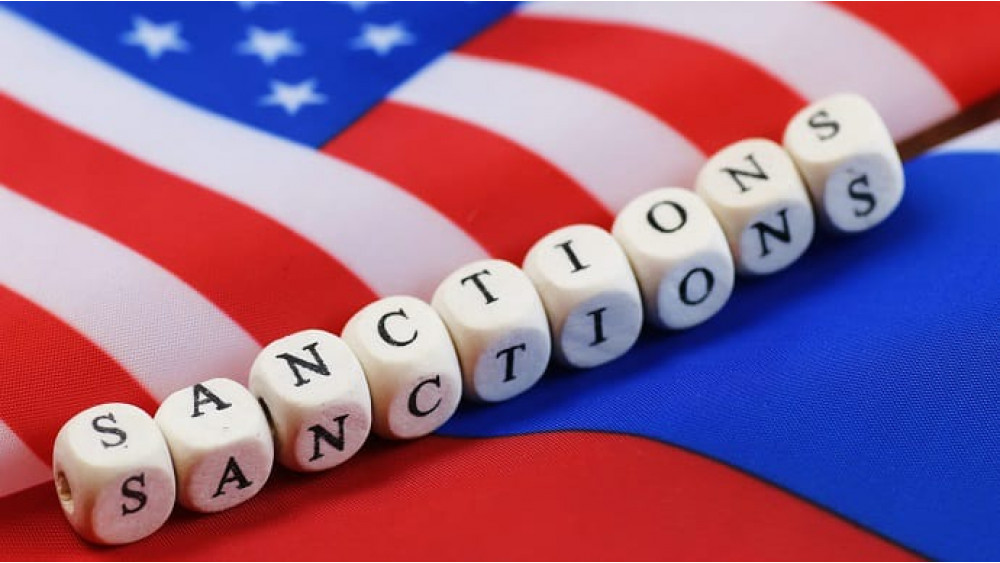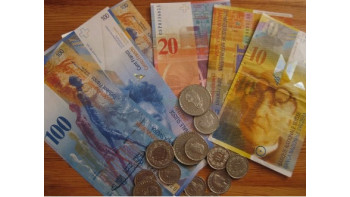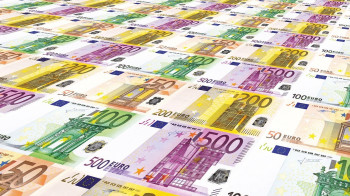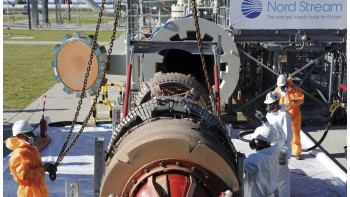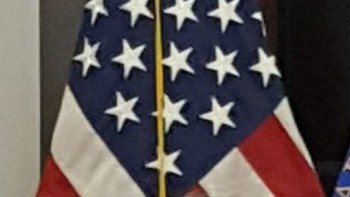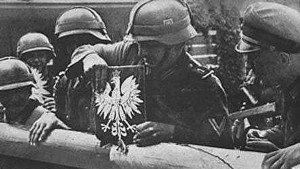At the same time, it was the United States that, following in the footsteps of Barack Obama's administration and its "Magnitsky Act", initiated sanctions toward Russia's international isolation, which the EU and other countries, somehow tied to the U.S. financial system, eventually joined otherwise risking economic losses.
Now for the administration led by Joe Biden, known for his harsh public statements as regards his Russian counterpart Vladimir Putin, the anti-Russian sanctions policy has become more principled than for previous leaders in Washington.
The mechanism of implementation and application of American sanctions targeting Russia and related to the Ukraine crisis, is worth elaborating on.
Mighty OFAC
Washington implements and administers economic sanctions through a seemingly inconspicuous agency, the Office of Foreign Assets Control (OFAC), which reports to the Office of Financial Intelligence and Counterterrorism and is part of the U.S. Treasury Department.
The Office implements economic sanctions to protect national security and support foreign policy against governments, individuals, and legal entities, including terrorist organizations.
In particular, in August 2017, Congress passed the Countering America's Adversaries Through Sanctions Act (CAATSA), which entitles OFAC to freeze assets, prohibit the activities of sanctioned entities, and collect fines for failure to comply with its orders.
Therefore, OFAC may freeze U.S. bank accounts of sanctioned individuals, as well as restrict their access to the U.S. financial system as a whole by prohibiting U.S. banks from cooperating with financial institutions in other countries where the individuals in question have financial assets. As a rule, financial institutions, fearing to face restrictions as well, resort to blocking the accounts of individuals targeted by U.S. sanctions. Such measures are currently being taken by British, Cypriot, and Swiss banks.
In addition, the Act stripped the U.S. president of the right to ease or lift sanctions without congressional approval. Previously, sanctions could be imposed, amended, and lifted by president's executive orders.
CAATSA also requires the secretary of the Treasury, the director of National Intelligence, and the secretary of state to report annually to Congress on high-ranking public officials closely affiliated with Kremlin officials, including their income, assets, and investments, as well as Russian companies' investments in U.S. securities, real estate, and assets to update OFAC sanctions lists.
However, OFAC is not limited to addressing the reports of mentioned officials. When designating an entity, OFAC examines information from a variety of sources, including reports from U.S. agencies, information coming from foreign governments and international organizations, and even media reports.
Subsequently, OFAC investigators verify information collected and obtained in cooperation with foreign governments and international organizations, and analyze it before drafting conclusions that are outlined in a formal memorandum.
At the same time, OFAC may not disclose its sources, and even the court cannot force the agency to do so. The memorandum contains information on whether the individual falls under the criteria allowing to designate them in the sanctions list. Before OFAC makes a final decision to add someone to the sanctions list, the Office may consult with the Treasury, Justice Department, and other U.S. agencies if necessary.
President's Executive Orders
OFAC launches a sanction mechanism through Executive Orders issued by President of the United States, which OFAC then implements in sanctions programs.
On the Ukraine issue, a sanctions program is in place, related to Russia and Ukraine, entitled OFAC-Related Ukraine/Russia Sanctions, introduced in 2014 during Obama's term. As part of this program, a number of Executive Orders have been introduced.
- EO-13660 "Blocking Property of Certain Persons Contributing to the Situation in Ukraine", signed on March 6, 2014. It imposes sanctions on 123 individuals and 24 legal entities. The list includes some high-profile figures, such as the Prosecutor of the Autonomous Republic of Crimea, Natalia Poklonska , former government officials Eduard Stavytsky and Dmytro Tabachnyk who held posts during Viktor Yanukovych's presidency, as well as Viktor Yanukovych himself, People's Deputy Oleh Tsarev, the self-proclaimed republics of "DPR/LPR" and their leaders. It is believed that their actions directly or indirectly undermine the democratic system, threaten peace, security, stability, sovereignty, and territorial integrity of Ukraine.
It is worth mentioning that in early March 2021, the new president, Joe Biden, by his decree extended EO-13660 for another year.
- EO-13661 "Blocking Property of Certain Persons Contributing to the Situation in Ukraine", signed on March 17, 2014. It imposes sanctions on seven Russian officials by freezing their bank accounts, blocking property, and denying entry visas.
Under this order, sanctions were also imposed on 102 individuals, including Russian politicians and public figures such as Valentina Matvienko, Vladislav Surkov, Alexei Pushkov, the Rotenberg family, as well as 72 legal entities, including JSC JSB Russia, the Sozvezdie electronic industry enterprise, and the Kalashnikov military concern.
- EO-13662 "Blocking Property of Additional Persons Contributing to the Situation in Ukraine", signed on March 20, 2014. The president used it to impose sectoral sanctions on persons involved in Russia's military, energy, metallurgical and mining industries, and those providing financial services.
Six individuals have been designated, including Russian billionaires Oleg Deripaska, Igor Rotenberg, as well as 303 legal entities.
- EO-13685 "Blocking Property of Certain Persons and Prohibiting Certain Transactions With Respect to the Crimea Region of Ukraine", signed on December 19, 2014, and closely related to the Russian occupation of the Crimean peninsula. American entities have been prohibited from exporting/importing goods, services or technologies to/from Crimea, as well as investing in the Crimea region.
It should be noted that the Order defines the "Crimea region of Ukraine", which includes the land territory in that region as well as any maritime area over which sovereignty, sovereign rights, or jurisdiction is claimed based on purported sovereignty over that land territory.
The Order imposed sanctions on seven vessels, nine individuals, and 72 legal entities, including a number of Crimean critical infrastructure (railway, port), and hospitality facilities.
- EO-13849 "Authorizing the Implementation of Certain Sanctions Set Forth in the Countering America's Adversaries Through Sanctions Act," signed by President Donald Trump on September 20, 2018. It introduced additional sanctions in the field of financial services (credit, loan, etc.) and trade with sanctioned individuals and entities. It was under this Order that the United States began to implement CAATSA.
Separately, in the same year, the U.S. Congress supported:
- Support for the Sovereignty, Integrity, Democracy, and Economic Stability of Ukraine Act of April 3, 2014 (PL 113-95), condemning Russia's armed invasion of Ukraine and illegal occupation of Crimea.
The Act imposes sanctions on assets, entry/exit of individuals who, as of November 21, 2013, or thereafter:
1) Are recognized as responsible for actions that undermine democratic processes in Ukraine or threaten its peace or territorial integrity, as well as commit crimes that significantly corrupt Ukraine, siphon assets from Ukraine, or commit serious rights violations;
2) Are current or former senior officials of the Russian Federation who have been engaged in any of the above activities in relation to Ukraine;
3) Work in the armaments sector of the Russian Federation, which is engaged in any of the above activities in relation to Ukraine;
4) Are current or former managers of a commercial entity that has carried out any of the above activities in relation to Ukraine, or a commercial entity whose property and interests are blocked in accordance with this Act;
5) Materially assisted or provided financial, material, technological support to any of the above activities in relation to Ukraine, or to any individual whose property and property interests are blocked in accordance with this Act; and
6) Acted on behalf of any individual sanctioned by this Act.
- "Ukraine Freedom Support Act" (PL 113-272) of December 18, 2014, under which the United States provides financial assistance to Ukraine in the defense, military and energy sectors, and imposes sanctions on Russian companies in defense, oil and gas, and financial sectors.
The most popular type of OFAC sanctions is putting a target in the so-called "Specially Designated Nationals List" ("SDN") within the Executive Orders issued.
OFAC publishes a special "blacklist", which includes individuals and legal entities with whom U.S. nationals and legal entities are prohibited from doing business.
These are the most severe sanctions. Not only do they prohibit designated persons from entering the United States, doing business in the country, in particular with U.S. companies, their assets are blocked in any financial institution tied with U.S. financial institutions.
The sanctions also affect those affiliated with the sanctioned entity. In particular, sanctions against individuals are applied using the "50 Pecent Rule" – the property and interests in property of entities directly or indirectly owned 50 percent or more in the aggregate by one or more blocked persons are considered blocked. The SDN list within the mentioned OFAC-Related Ukraine / Russia Sanctions program includes more than 500 individuals and legal entities.
Sectoral sanctions
Sectoral Sanctions Identifications (SSI) are more flexible than SDN sanctions and target specific sectors of the economy. In particular, within the framework of sanctions related to Ukraine, they apply to Russian nationals and entities in the defense, financial, energy, gas, and oil sectors of the Russian economy.
SSIs restrict access to financing, transactions to a certain limit on the issuance of new debt and capital after a designated date, and so on.
SSI as well as SDN is applied both to the direct targets of the sanction program, and to those affiliated with them, where the key factor is the percentage of influence of the sanctioned target on them.
Sectoral sanctions on Russia are implemented by Executive Order 13662 and their conditions vary for the different sectors of the economy. In particular, Russian companies are divided into four groups by sector, and measures applied against them are defined by special directives issued by OFAC.
Directive 1: It applies to certain Russian financial institutions listed in the SSI. U.S. persons are prohibited from entering into new debt transactions with them for more than 14 days and new capital transactions, including sales and purchases.
The restriction applies not only to individuals and legal entities listed on the SSI list, but also to legal entities in which SSI targets have 50 percent or more ownership (Rule 50%).
Directive 2: It Applies to certain Russian entities and Russian nationals working in the energy sector and included in the SSI list. U.S. persons are prohibited from entering into new debt transactions with them for more than 60 days. However, the Directive does not apply to capital transactions.
As a result, SSI targets shall not be able to obtain long-term loans from U.S. banks, entities, and investors.
The Directive applies not only to individuals and legal entities listed on the SSI list, but also to legal entities in which SSI targets have 50 percent or more ownership (Rule 50%).
Directive 3: It applies to the defense sector. U.S. persons are prohibited from entering into new debt obligations with individuals and legal entities working in the defense sector for more than 30 days, but this Directive does not apply to capital transactions.
The restriction applies not only to individuals and legal entities listed on the SSI list, but also to legal entities in which SSI targets have 50 percent or more ownership (Rule 50%).
For example, as OFAC explains, if a U.S. national owns a Kalashnikov product that was purchased and fully paid for before the sanction date, that product shall not be blocked, and OFAC sanctions do not prohibit such person from selling the product on the secondary market if Kalashnikov is not interested in this new deal. However, after the sanctions were imposed on Kalashnikov on July 16, 2014, new operations with the latter are prohibited for U.S. persons, while any assets and agreements in which the entity is interested are blocked by OFAC.
Directive 4: It applies to the gas and oil sectors. U.S. persons are prohibited from providing goods, services (except for financial ones), or technology in support of exploration or production for deepwater, Arctic offshore, or shale projects that have a potential to produce oil in Russia or those involving SSI targets who have a 33 percent or greater ownership interest in a particular project, where there is a potential of oil production with no territorial restriction.
The ultimate goal of American sanctions is not to punish, but to achieve a positive change in behavior, which in this case – would be Russia ceasing aggression toward restoring Ukraine's territorial integrity and returning the temporarily occupied territories under Kyiv's jurisdiction. As long as OFAC has evidence of the influence of individuals and entities on Russia's military expansion into Ukraine, they will remain on Washington's sanctions list, while violators will be prosecuted for violating restrictive measures.
U.S. law provides for civil and criminal liability for violators. For example, an individual violator may be fined up to $250,000 and a legal entity – up to $500,000. If transactions occur with such persons – the penalty may be calculated depending on the amount of that transaction, which is to be multiplied by two. In the case of criminal liability, an offender faces up to 20 years in prison and/or a fine of up to $1,000,000 for each offense, as well as additional sanctions in some cases.
Thus, in response to the aggression against Ukraine, the United States imposed on Russia a multilevel sanctions system, administered by OFAC. With regard to individuals and economy sectors, OFAC sanctions programs range from those that block the entire government and include geographically wide trade restrictions, to rather limited measures, in particular targeted at specific individuals and legal entities, as well as types of transactions regardless of the targeted entities' location.
Given the above, U.S. sanctions related to Ukraine and Russia block the assets of individuals and entities that directly or indirectly commit actions which
- Undermine democratic processes in Ukraine;
- Threaten the peace, security, stability, sovereignty or territorial integrity of Ukraine;
- Are aimed at the waste of state property of Ukraine; and
- Are aimed at the proclamation of state power on the territory of Ukraine without the permission of the Government of Ukraine,
as well as who:
- Are government officials of the Russian Federation;
- Work in Russia's strategic sectors of the economy (defense, energy, etc.);
- work in the Crimea region; and
- engage in any activity, own, or provide material assistance in the cases provided for in EO-13660, 13661, 13662, or 13685.
Despite the introduction of restrictive measures, Russia has recently increased its military presence on the border with Ukraine and in Crimea, which is another confirmation of Russia's intentions to pursue military pressure and threats of using force against Ukraine. Therefore, it's only by strengthening the sanctions policy both by the United States and the international community as a whole, by putting pressure on Russia's economy and further deepening its international isolation is it possible to partially curb yet another attempt of territorial encroachments on Ukraine by the aggressor state.

